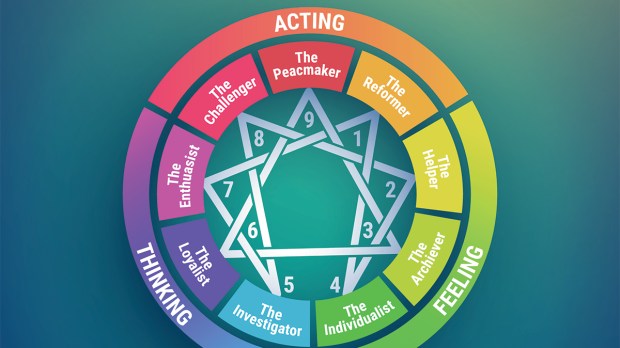In recent years the Enneagram personality system has skyrocketed in popularity. Even many Christians have adopted the system into their everyday life.
However, the Catholic Church has stood firm in its warning against the Enneagram system.
Why is that?
Possible occult origins
The precise origin of the Enneagram system is hotly debated. Some say it was developed by a 4th-century Christian mystic, Evagrius Ponticus.
Strictly speaking, Ponticus didn’t develop a personality system, but wrote about “eight deadly thoughts.” These “thoughts” may have influenced the development of the “seven deadly sins.”
Regardless, his spirituality was highly criticized by St. Jerome and was condemned by the Second Council of Constantinople.
Another possible origin is found in the writings of Greek philosopher Plotinus. He observed 9 divine qualities that are found in human nature, and his teachings were influential in the lives of St. Augustine and St. Ambrose.
The more probable origin of the Enneagram system in use today is 19th-century Russian writer George Gurdjieff.
Gurdjieff was fascinated by the occult and studied various spiritualities, creating his own school of thought.
Yet, the Enneagram system wasn’t fully developed until Bolivian philosopher Óscar Ichazo founded the “Arica School,” which explains his legacy and teachings.
The goal of the system is to teach people, “how to transcend the lowest levels into the Highest State of Mind. This State is found in all of us and is available to each of us. This Higher State is our Awakened Self and is experienced as a State filled with great Happiness, Light, Liberation, and Unity.”
According to the USCCB, “Ichazo claimed to have discovered the personality type meaning of the enneagram while in some kind of ecstatic state or trance under the influence of some spirit or angelic being.”
Church’s official warnings
Since the Enneagram system is more based in philosophy and spirituality than scientific research, the Church has warned Catholics to stay away.
This was written in a document by the Vatican in 2003, Jesus Christ: Bearer of the Water of Life.
Gnosticism has always existed side by side with Christianity, sometimes taking the shape of a philosophical movement, but more often assuming the characteristics of a religion or a para-religion in distinct, if not declared, conflict with all that is essentially Christian.” An example of this can be seen in the enneagram, the nine-type tool for character analysis, which when used as a means of spiritual growth introduces an ambiguity in the doctrine and the life of the Christian Faith.
The USSCB also drafted a document on the Enneagram, giving a warning at the end of it.
In conclusion, those who are looking for an aid for personal and psychological development should be aware that enneagram teaching lacks a scientific foundation for its assertion and that the enneagram is of questionable value as a scientific tool for the understanding of human psychology. Moreover, Christians who are looking for an aid for spiritual growth should be aware that the enneagram has its origins in a non-Christian worldview and remains connected to a complex of philosophical and religious ideas that do not accord with Christian belief.
Healthy alternatives for Catholics
More healthy alternatives to the Enneagram system are the Myers-Briggs and the classical four temperaments personality system (such as found in the book the Temperament God Gave You).
The four temperaments have roots in classical philosophy, but have also been studied in scientific circles.



